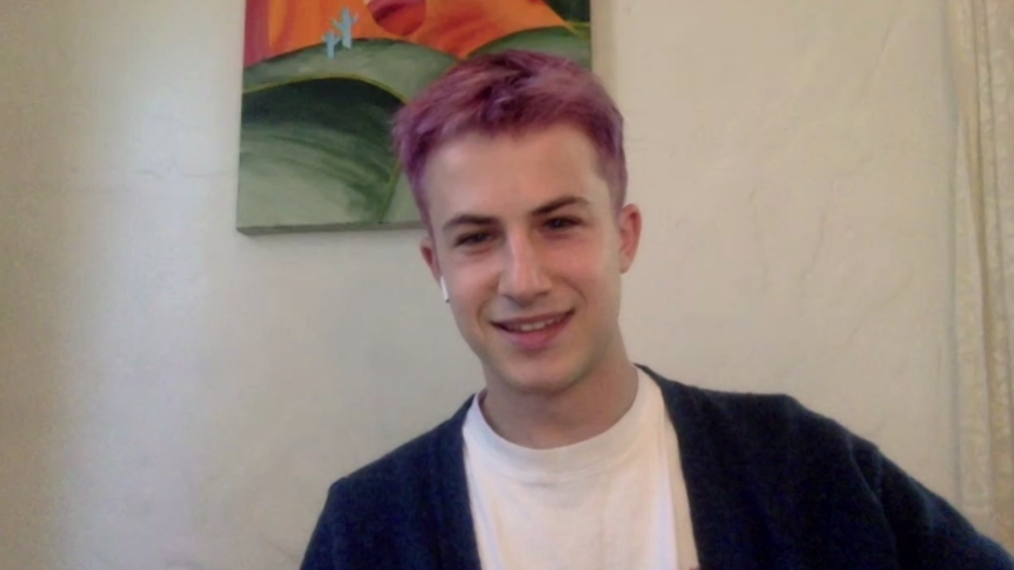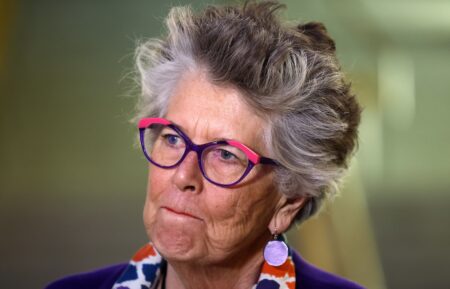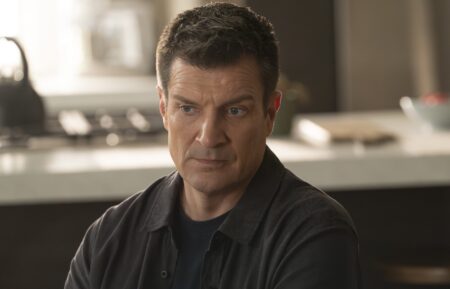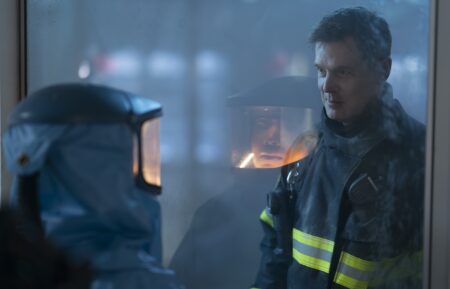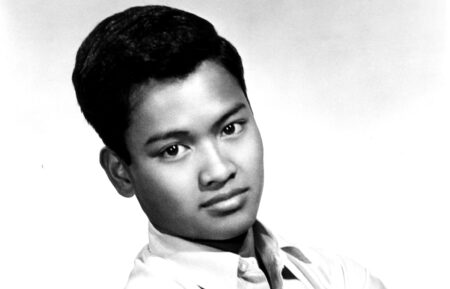’13 Reasons Why’s Deaken Bluman on Winston’s Ending & Closure Over Monty’s Death
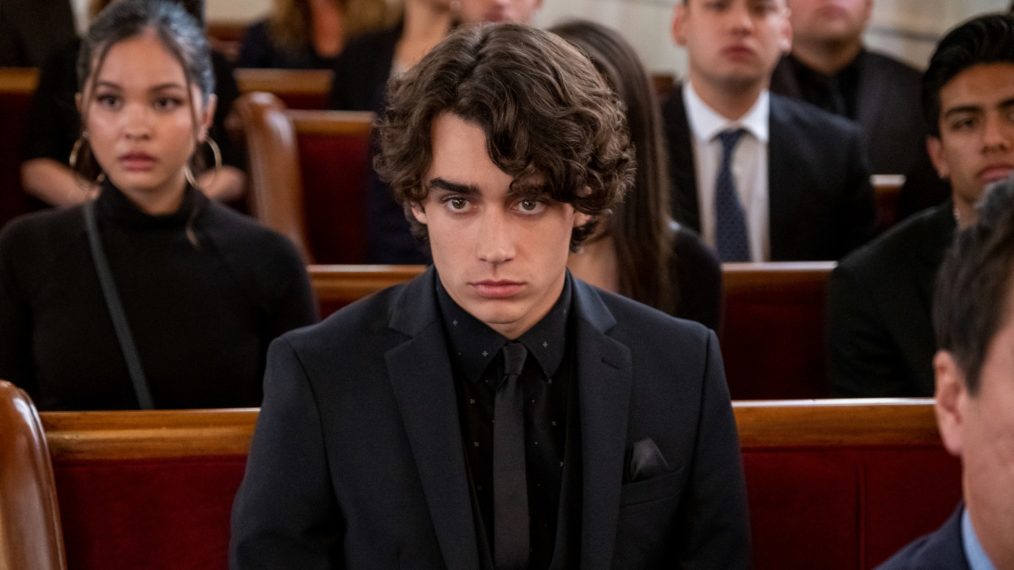
Q&A
[Warning: The below contains MAJOR spoilers for Season 4 of 13 Reasons Why.]
Netflix’s teen drama 13 Reasons Why closed out its final chapter with Season 4, which saw the students of Liberty High reach graduation day along with some closure.
But it wasn’t just the show’s original stars accepting diplomas in the finale: Deaken Bluman also donned a cap and gown as his character Winston Williams finished out his high school career with the kids of Liberty. Introduced in Season 3 as a student at Hillcrest, Bluman’s Winston was in love with the troubled and dangerous Monty de la Cruz (Timothy Granaderos).
When Monty was imprisoned for assaulting fellow classmate Tyler Down (Devin Druid), he was attacked and killed in confinement, leaving him as a perfect scapegoat for his former friend Bryce Walker’s (Justin Prentice) unsolved murder. But as fans who tuned in for Season 3 will recall, it was Alex Standall (Miles Heizer) and Jessica Davis (Alisha Boe) who were responsible for the serial rapist’s death.
Bent on uncovering the truth, Winston arrived at Liberty to finish out the semester and solve the mystery behind Bryce’s death so he could exonerate his deceased lover. Things don’t go quite as planned though as Winston learns the truth he’s searching for but refrains from making use of that information. Below, Bluman opens up about Winston’s role, his closure over Monty’s death, the relevancy of Season 4’s plots and much more.

(Credit: DAVID MOIR/NETFLIX © 2020)
Winston’s main role this season is antagonistic towards the other students at Liberty High. Do you think his intentions were malicious in seeking revenge or pure in seeking justice?
Deaken Bluman: I think he was leaning towards the justice side because he really stems from honesty and connection. That’s how Winston was born in my mind. But there is a revenge aspect. That’s probably what’s got him going. But then getting into the lives of these other characters and getting to know them, it was probably his way of getting over Monty. So, he was looking for the truth for himself.
Fans saw you briefly in Season 3, but your role expanded in Season 4. What was it like getting to explore Winston more?
It was really a wonderful experience, and extending my friendships with everybody else there too since I was the new kid on the block. There was a little art imitating life. Because I was the guy who knew the secret — which was kind of fun because even on set and off set we were still kind of playing. It was really fun to me and getting to know these people and getting to know the directors and Brian Yorkey was a really wonderful experience.
Were you aware of how big your role would be when you started working on the show in Season 3?
I probably was lucky that I didn’t know much of the information, to be honest, because I probably would have put a lot more weight and overthought into things. I was only originally supposed to be a day player and that was for the Monty love scene. But then that fight scene in the third season at that party [happened and] I was lucky enough that they brought me back and I did a good enough job that they left that part of the story so wide open that they could go back to it anytime that they wanted to.
I got brought on to the fourth season and I had no idea. I was in Traverse City with my grandmother and my wife and we were living out in a little cabin and I had no idea what I was going to do next. I had to find a job quick because I was living from paycheck to paycheck. So then fortunately enough, I got a call from my agent telling me they wanted to bring me back out as a series regular.
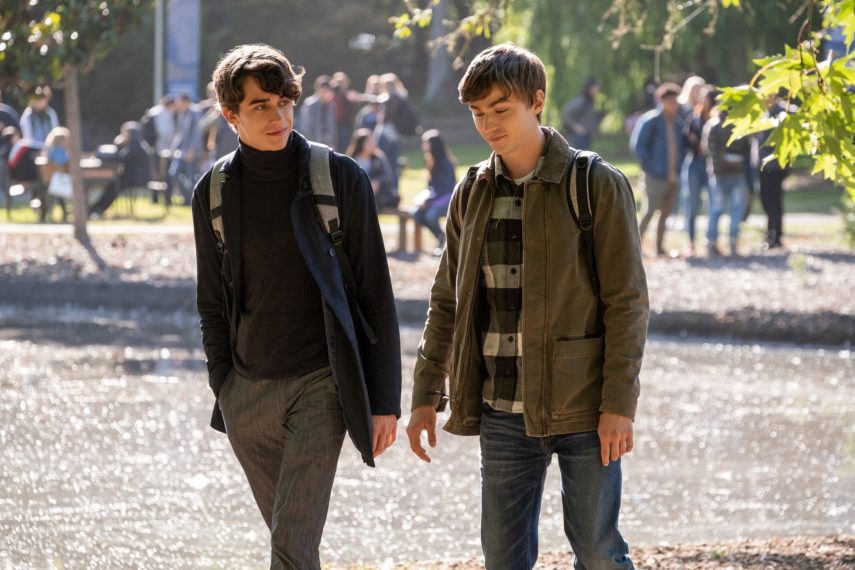
(Credit: DAVID MOIR/NETFLIX © 2020)
What part of Winston’s character or story were you most excited to dig into during Season 4?
You know, getting to know Winston had to do with a lot of thought and a lot of thinking. There was a lot of emotional pent-up teen anxiety, wanting to do right, wanting to fit in. I think about Winston and even how he cooks his eggs in the morning and stuff like that. There’s very minimal things that eventually build a nice decent house to play in.
Winston’s connection with Alex took an unexpected turn, particularly when he learns the truth about his role in Bryce’s death. Do you think he made the right choice when it came to letting Alex off the hook?
Well, I think Winston really thought that enough people had gotten hurt and had their lives ruined in the school. And then the environment at the school was cold. Alex told Winston the truth, and that’s all he wanted. He didn’t want to be a tattletale, he’s not a tattletale. But two people died because of lies, and then unfortunately they use Monty to cover their asses, but Winston had to put himself in their shoes. Would he do the same thing? He probably would because he wants to save his ass too.
Winston really was falling for Alex because he came out with the truth right away when they were sitting down there in the parking lot [in the camping episode]. Alex sat down right away and tells Winston, he had tried to kill himself and what he went through. Winston wants nothing more than someone to be honest and have that connection with another person, it doesn’t matter how serious it is. It just has to be completely a hundred percent true.
This season tackled some tough topics including active shooter situations and mental health treatment, among others. Which did you feel was most important and reflective of life for today’s teens?
I really think the active shooter drill episode “Thursday” that Brenda Strong directed, everyone needs to watch that episode. Aunts, uncles, grandparents, grandmas, people who don’t watch these certain types of shows. If they’re going to watch one episode this season, they should watch that episode — to feel that stress and anxiety as a teen and the biggest fear of high schoolers. I can’t imagine going to any school and having that fear. I think that’s really messed up that any person in the world would have to go to school and be educated about this big threat. That is so messed up. What have we done?
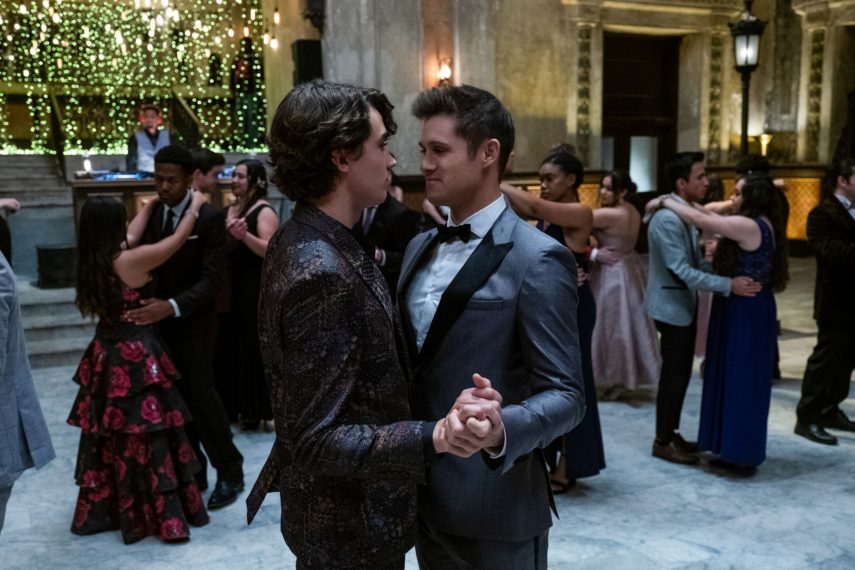
(Credit: DAVID MOIR/NETFLIX © 2020)
Yes, it’s definitely intense to watch.
Dylan [Minnette]’s performance when he’s in the hallway, because he’s so tensed up and he’s so pissed off that it was a drill, really made sense. That really pulls that whole episode through in such a beautiful ending without anybody having to get killed.
How did you feel about Winston’s ending? Did he get the closure over Monty’s death that he deserved?
The closure Winston needed was probably just to see Monty one last time and let him go to that other side and live happily in the other world. But we all don’t get happy endings, we can never really get full closure. I don’t think there’s ever a full closure because Winston will always think about Monty and he’ll always think about Alex. So I think his ending was more realistic than anything.
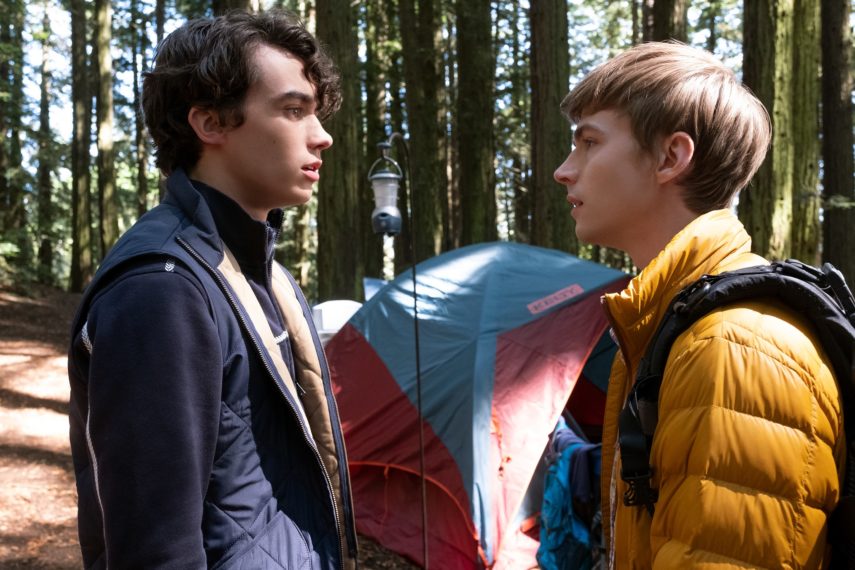
(Credit: DAVID MOIR/NETFLIX © 2020)
This show has a massive fan following — have you experienced any part of that aspect of the series through social media or other platforms?
Yes. The fans are wonderful, they’re so supportive, and really funny. But they also get what Winston was trying to accomplish. I really enjoyed reading some of [their comments], but I’m not a big social media expert. The fans really care about this show and I get it because the show is the closest thing that touches them today. It’s their closest reality, and that’s important. I’m really glad that Netflix and 13 Reasons Why made that happen and really connects with the younger and future adults of tomorrow.
13 Reasons Why, Streaming now, Netflix

![Did [Spoiler]'s Return in the Finale Bring '13 Reasons Why' Full-Circle?](https://www.tvinsider.com/wp-content/uploads/2020/06/13-reasons-why-clay-season-4-234x155.jpg)
